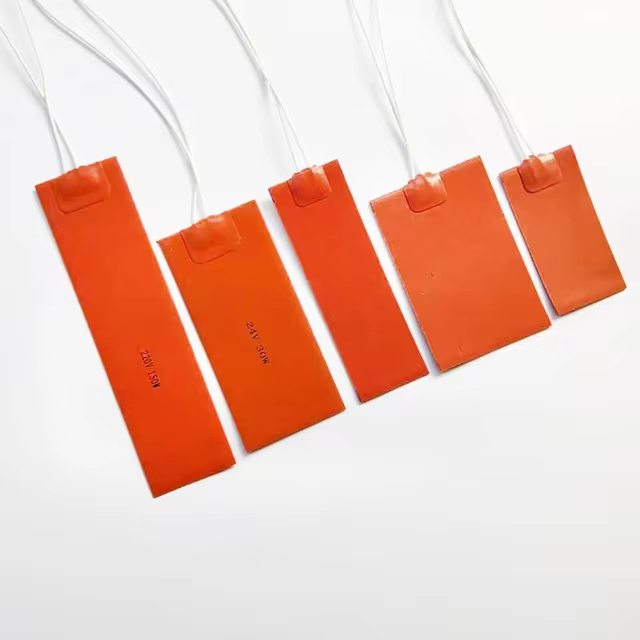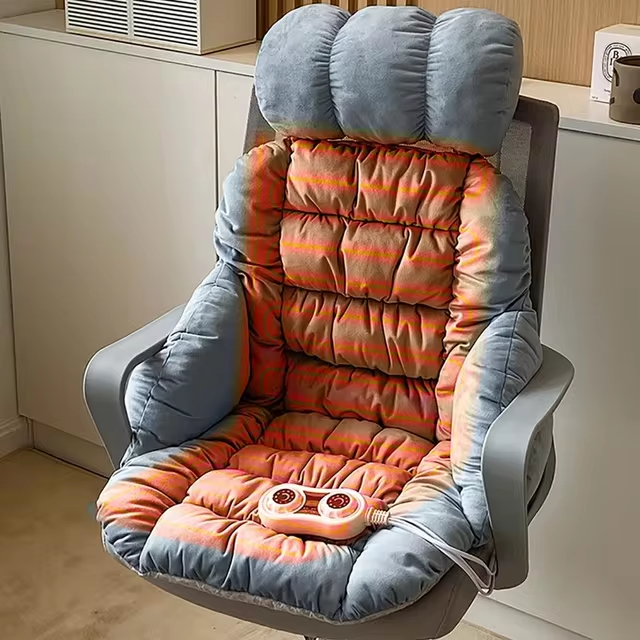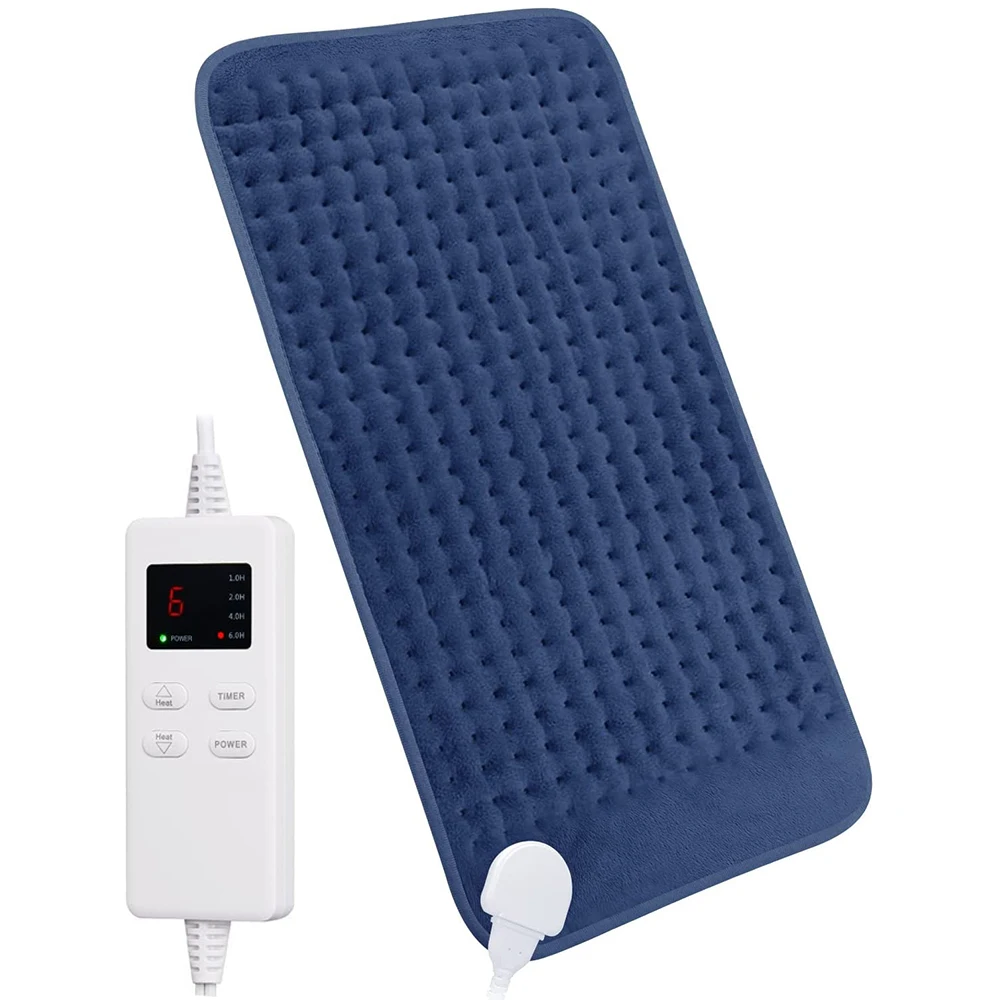Is a Heat Pad Safe for Pregnancy Discomfort?
Pregnancy is a beautiful journey filled with anticipation and joy, but it can also come with its fair share of discomforts. Many expectant mothers experience back pain, abdominal cramps, and other bodily aches as their bodies undergo significant changes. In such instances, a common question arises: is using a heating pad safe during pregnancy? This article will address that question while also exploring the risks, benefits, and considerations associated with the use of heating pads during this critical period.
Understanding the Different Types of Heating Pads
When considering the safety of heating pads during pregnancy, it’s essential to first understand the different types available on the market today. Primarily, there are electric heating pads and microwaveable heat packs. Each type has its specific use, benefits, and potential risks.
Electric Heating Pads
Electric heating pads provide continuous heat and can be adjusted to various temperature settings. Although they are convenient, their use during pregnancy comes with specific cautions. Since electric pads require a power source, there is a risk of overheating, which can lead to burns, especially if the pad is left on for an extended period.
Moreover, some sources warn that prolonged use of electric heating pads may raise the body temperature to levels that are not advisable during pregnancy. Elevated body temperature, particularly in the first trimester, has been linked to certain birth defects. Therefore, it is crucial for pregnant women to exercise caution when using electric heating pads.
Microwaveable Heat Packs
Microwaveable heat packs are filled with materials that retain heat, such as rice or gel. They can be heated in the microwave and usually come with fewer risks than electric heating pads. However, it’s still vital to monitor the temperature and ensure that they don’t become excessively hot before use. Overheating a microwaveable pack can lead to burns or discomfort.
To summarize, both types of heating pads have their pros and cons, and careful consideration is needed before deciding which one to use, especially during pregnancy.
Potential Benefits of Using a Heating Pad During Pregnancy
Despite the precautions, there are several benefits to using heating pads during pregnancy. Many women find relief from aches and pains, making this a valuable tool during this time of change.
Alleviating Lower Back Pain
Lower back pain is remarkably common during pregnancy, often stemming from the growing weight of the baby and alterations in the body’s center of gravity. Applying heat to the lower back can stimulate blood flow and reduce muscle tension. However, it is recommended to use heat for short periods, ideally 15 to 20 minutes at a time, to avoid overheating the skin.
Easing Abdominal Cramps
Some women experience abdominal cramps, particularly in the first trimester. While the cause can range from implantation cramps to stretching of the ligaments, mild heat can provide comfort. The soothing warmth of a heating pad can alleviate discomfort, but it is crucial to avoid placing it directly on the abdomen for extended periods.
Enhancing Overall Relaxation
Pregnancy can bring about an array of physical and emotional stressors. Using a heating pad can induce relaxation, helping to create a more serene atmosphere. While this relaxation can be beneficial, it is essential to maintain moderation to prevent overheating.
Risks Associated with Heating Pads During Pregnancy
While there are benefits to using heating pads, it is equally important to be aware of the associated risks. Understanding these risks can empower expectant mothers to make informed decisions about their health and well-being.
Potential Overheating
One of the most significant risks of using heating pads during pregnancy is the possibility of overheating. When the body temperature exceeds 102.5°F (39.2°C), it can lead to complications. Therefore, if you choose to use a heating pad, frequently check the temperature and limit usage to reduce the risk of overheating.
Skin Burns
Skin sensitivity increases during pregnancy. Consequently, using heating pads, especially electric ones, for long durations can result in burns. It’s recommended to place a cloth between the heating pad and your skin to reduce this risk, thereby incorporating an extra layer of protection.
Medical Conditions
Certain medical conditions may further complicate the use of heating pads. For instance, women with conditions such as gestational diabetes need to be particularly mindful of their body temperature. Elevated body temperature can affect blood sugar regulation, presenting a risk to both the mother and baby.
In this instance, consulting with a healthcare provider is vital. Your healthcare professional can provide personalized advice based on your specific condition.
Recommendations for Safe Use of Heating Pads During Pregnancy
When it comes to using a heating pad during pregnancy, moderation and mindfulness are essential. To ensure safety while still reaping the benefits, consider the following recommendations.
Consult with Your Healthcare Provider
Before using a heating pad, always discuss your intentions with your healthcare provider. They can offer tailored guidance based on your particular situation and medical history. Some practitioners may even suggest alternative methods for pain relief during pregnancy.
Limit Use and Duration
As a general rule, limit the application of heat to about 15-20 minutes at a time and avoid using heating pads directly on the abdomen. This approach minimizes the risk of overheating while still providing some level of comfort.
Monitor Temperature
Keep a close eye on the temperature settings if you are using an electric heating pad. Opt for the lowest setting that still provides relief. For microwaveable packs, ensure you let it cool for a moment before applying it to your skin.
Use a Barrier
Whether you choose an electric heating pad or a microwaveable pack, it’s always wise to use a barrier, such as a towel or cloth, between the heating source and your skin. This barrier can help prevent burns and discomfort.
Listen to Your Body
Every pregnancy is different, and what works for one person may not work for another. It’s crucial to listen to your body. If any discomfort or unusual sensations arise while using a heating pad, it is best to stop using it and consult your healthcare provider.
Alternative Methods for Pain Relief During Pregnancy
While heating pads can provide relief, there are alternative methods that may also help alleviate discomfort during pregnancy. Exploring these options can help create a comprehensive strategy for managing pain and discomfort.
Prenatal Massage
Prenatal massage is a safe and effective method for relieving tension and pain in the muscles and joints during pregnancy. Trained professionals know how to work gently around sensitive areas and can provide relief that complements or even replaces the need for heat therapy.
Gentle Stretching and Yoga
Participating in gentle stretching exercises or yoga specifically designed for pregnant women can improve flexibility and reduce pain. Engaging in these active methods encourages both physical and mental well-being, thus benefiting the mother and the baby.
Warm Baths
Instead of heating pads, opt for warm baths, which can provide the same soothing benefits. Fill a tub with warm water, but ensure the temperature is not too hot. This strategy can help relax sore muscles and reduce tension without the risks associated with direct heat application.
Hydrotherapy
Hydrotherapy, which involves the use of water for pain relief, can be helpful during pregnancy. Whether it’s a warm shower, bath, or even a swim in a pool, being in water can provide buoyancy and relieve pressure on the joints, offering a soothing experience.
 Conclusion: Is Heating Pad Safe During Pregnancy?
Conclusion: Is Heating Pad Safe During Pregnancy?
In summary, the question of whether heating pads are safe during pregnancy does not have a definitive yes or no answer. Women can benefit from the use of heating pads to alleviate discomfort, yet they must be aware of the potential risks involved. By taking the necessary precautions—such as consulting healthcare providers, adhering to time limits, and monitoring temperatures—expectant mothers can safely incorporate heating pads into their self-care routines. It ultimately comes down to individual circumstances and personal preferences. Therefore, it is crucial to weigh the benefits against the risks to make an informed decision.

